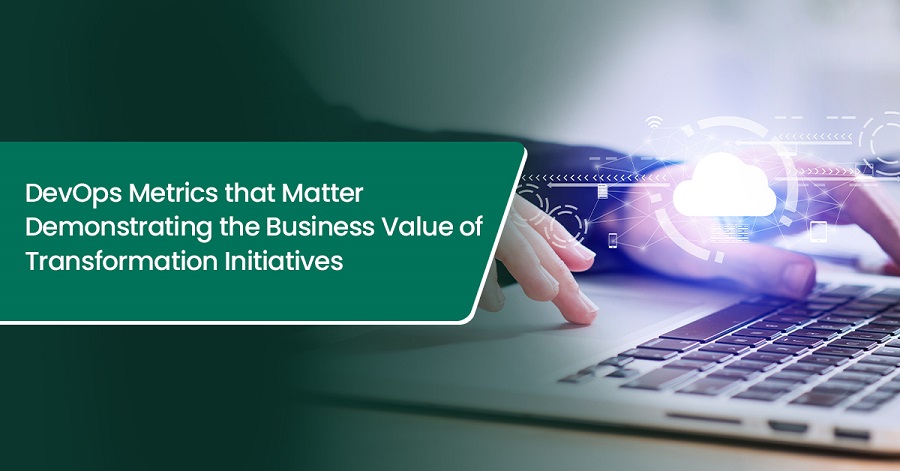Code Intelligence announced a new feature to CI Sense, a scalable fuzzing platform for continuous testing.
Business leaders agree that market growth and citizen-centric service delivery rely on quickly deploying high-quality software systems. Yet, assessing the success of these endeavors can be difficult as DevOps lacks a formal framework for evaluation. The dilemma deepens when today's organizations use output-based measurement systems or metrics that promote behaviors counter to a DevOps culture. This is where the DevOps transformation seems relevant. Organizations aware of the need for a robust culture should optimize IT service delivery and navigate this terrain by using actionable metrics, fostering transparency, and promoting collaboration. This can ensure a crucial shift in the modern landscape of technology and business.

There should be a well-defined DevOps transformation roadmap, as it guides organizations to navigate the complexities of implementation practices. It can outline the steps required, identify key milestones, and set an effective timeline for the transformation journey.
To showcase the true value of DevOps implementation, organizations should focus on metrics that provide insights into the key areas that require improvement. Let's uncover the critical DevOps metrics that matter and help organizations demonstrate the business value of their unique transformation initiatives.
Deployment Frequency
One of the primary goals of DevOps is to accelerate deployment while maintaining stability. Deployment frequency indicates how often new code is released to production. A higher deployment frequency indicates that the development and operations teams work together more effectively, automate procedures, and deliver value to end users. Monitoring deployment frequency is critical to determining the success of a DevOps strategy.
Lead Time for Changes
Lead time changes can measure the total time required to initiate a change request and its deployment in the production environment. It offers insights into the efficiency of the development pipeline. A shorter lead time stands for a streamlined and automated development process and demonstrates the effectiveness of your DevOps approach in reducing time-to-market.
Change Failure Rate
Ensuring the stability of deployments is as important as speed. The change failure rate can measure the percentage of total changes that fail or require rollbacks. A low change failure rate also indicates a robust DevOps strategy that effectively focuses on quality assurance, testing, and validation before releasing changes into production.
Mean Time to Recovery (MTTR)
When a failure or outage occurs, the Mean Time to Recovery (MTTR) becomes crucial. This metric evaluates the average duration for restoring services following an incident. A shorter MTTR demonstrates the efficiency of an organization's incident response and resolution procedures and highlights the resilience of its DevOps transformation.
Effectiveness of DevOps Testing Solutions
The success of a DevOps implementation relies on effective testing procedures. DevOps testing services play a crucial role in ensuring the quality and reliability of software releases. Metrics such as test capacity, success rate, and execution duration provide valuable insights into the effectiveness of testing methodologies within the DevOps framework.
Automation Metrics
At its core, DevOps thrives on automation, a force that propels efficiency and repeatability. Metrics associated with this driving force include the percentage of automated tests, deployment automation rate, and infrastructure-as-code coverage. These tangibly demonstrate the level of workflow integration within development and operations. A mature DevOps automation strategy reveals itself through higher metrics regarding overall systemization.
Employee Satisfaction & Collaboration Metrics
Building a successful enterprise DevOps culture goes beyond mere tools and processes. It entails nurturing an atmosphere of collaboration and perpetual growth. Employee satisfaction surveys, utilization metrics for collaboration tools, and feedback mechanisms offer valuable insights into the human element of DevOps. High employee satisfaction and collaboration levels are prominent indicators of a successful enterprise DevOps transformation.
Conclusion
A successful DevOps transformation can help organizations increase business agility, accelerate time-to-market, improve customer satisfaction, and reduce operational costs. These outcomes bring tangible benefits for the organization and make a strong case for investing in DevOps transformation.
Organizations can effectively communicate the positive impact of their DevOps initiatives to stakeholders by showcasing metrics such as deployment frequency, lead time for changes, and MTTR. Moreover, continuously refining the DevOps transformation strategy ensures that it remains closely tied to the business's overall goals through aligning DevOps metrics with business objectives.
Industry News
WSO2 is adding new capabilities for WSO2 API Manager, WSO2 API Platform for Kubernetes (WSO2 APK), and WSO2 Micro Integrator.
OpenText™ announced a solution to long-standing open source intake challenges, OpenText Debricked Open Source Select.
ThreatX has extended its Runtime API and Application Protection (RAAP) offering to provide always-active API security from development to runtime, spanning vulnerability detection at Dev phase to protection at SecOps phase of the software lifecycle.
Canonical announced the release of Ubuntu 24.04 LTS, codenamed “Noble Numbat.”
JFrog announced a new machine learning (ML) lifecycle integration between JFrog Artifactory and MLflow, an open source software platform originally developed by Databricks.
Copado announced the general availability of Test Copilot, the AI-powered test creation assistant.
SmartBear has added no-code test automation powered by GenAI to its Zephyr Scale, the solution that delivers scalable, performant test management inside Jira.
Opsera announced that two new patents have been issued for its Unified DevOps Platform, now totaling nine patents issued for the cloud-native DevOps Platform.
mabl announced the addition of mobile application testing to its platform.
Spectro Cloud announced the achievement of a new Amazon Web Services (AWS) Competency designation.
GitLab announced the general availability of GitLab Duo Chat.
SmartBear announced a new version of its API design and documentation tool, SwaggerHub, integrating Stoplight’s API open source tools.
Red Hat announced updates to Red Hat Trusted Software Supply Chain.
Tricentis announced the latest update to the company’s AI offerings with the launch of Tricentis Copilot, a suite of solutions leveraging generative AI to enhance productivity throughout the entire testing lifecycle.




